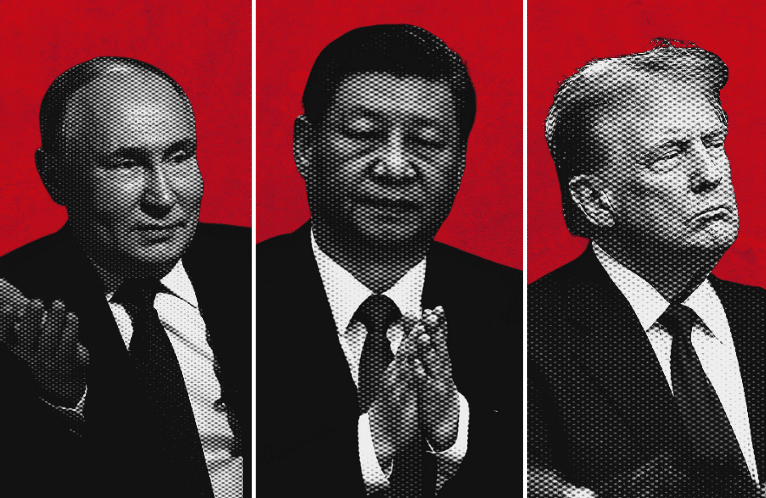Is President Trump Pushing Australia Towards China?
News of US President Donald Trump’s reportedly brusque phone call to the Australian Prime Minister Malcolm Turnbull, as well as his inflammatory comments regarding an Obama administration refugee resettlement deal with Australia, have shocked many commentators and policy-makers alike. In reality though, these responses are consistent with Trump’s broader repudiation of traditional protocols and etiquette, a trend Australia would be wise to heed when dealing with the new administration and pursuing its own interests abroad.
According to the Washington Post, Trump candidly expressed his dissatisfaction with the US’s agreement to accept 1,250 refugees from Australia’s own detention centres, calling it “the worst deal ever” and accusing Australia of attempting to export “the next Boston Bombers”. Following this, Trump turned to Twitter to express his frustration and disbelief, calling the agreement a “dumb deal”. Candid indeed, but undoubtedly Trumpian in tone, and not so surprising a reaction when considered in light of his recent executive order, which specifically ordered the 120-day suspension of refugee admissions to the US.
Nonetheless, the fact that criticism and disagreements between leaders that would normally be kept behind closed doors (something Prime Minister Malcolm Turnbull himself maintained in a press conference) has been so widely publicised is itself surprising. Surprising too is the stark contrast in tone with the official account of the phone call. But then again, Trump has a tendency to not adhere to the traditional ‘normal’ in both domestic and international politics. It has been his rallying call, that he will not repeat the same mistakes as his predecessors that have led to the current malaise (real or otherwise) As some commentators have noted, the leak of the phone call’s contents and related commentary, however unprecedented, is unlikely to seriously damage the US-Australia relationship. Rather, it should galvanise Australian policy makers to become more proactive and interests-based whilst expanding its relationships with other nations.
However, if such slights were to continue along with other significant changes in policy, it is reasonable to expect that countries like Australia will be more hesitant about engaging with the US. Trump’s opposition to the Trans-Pacific Partnership (TPP) is one such change. Cumulatively, these actions could lead Australia to pursue initiatives without the US. Already, Australia has hinted that it is open to China and Indonesia joining the TPP and it is also participating in negotiations of the Regional Comprehensive Economic Partnership – a deal that China endorses. Given China’s economic importance to Australia, deepening this relationship would be increasingly attractive. Moreover, a 2016 Lowy Institute survey found that an equal percentage of respondents considered either the US or China as having the most important relationship to Australia. Continued slights could sway public support in favour of China, which in turn would affect the actions of Australian leaders towards the Australia-US alliance.
In turn, China will likely seek to capitalise on any perceived rift between the US and Australia, especially given the importance of Australia to the US’s recent ‘pivot to Asia’. The most visible manifestation of this is the contingent of 1,250 US marines stationed in Australia’s northern city of Darwin, which though often couched in terms of disaster relief, has been interpreted as a counter to China’s growing regional dominance. Moreover, Chinese Foreign Minister Wang Yi has travelled to Australia for the fourth Australia-China Foreign and Strategic Dialogue – an opportune if serendipitous moment to strengthen the Sino-Australian relationship, potentially at the expense of US regional strategy.
Given the unpredictability that President Trump has brought to international affairs, Australia can no longer just rely on abstract and sentimental notions of shared values to sustain its close relationship with the US –the now infamous phone call between the two leaders is a testament to this. Instead, it should consider this a wake-up call to pursue its interests proactively and pragmatically, not just with the new US administration but with its international relations in general.
By JUSTIN ELLIOTT FEB. 8, 2017
Justin Elliott is a Spring 2017 intern at the Carter Center’s China Program.








